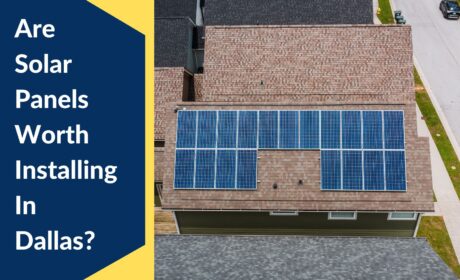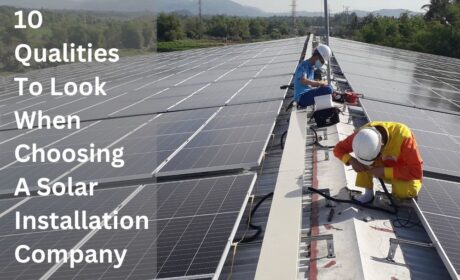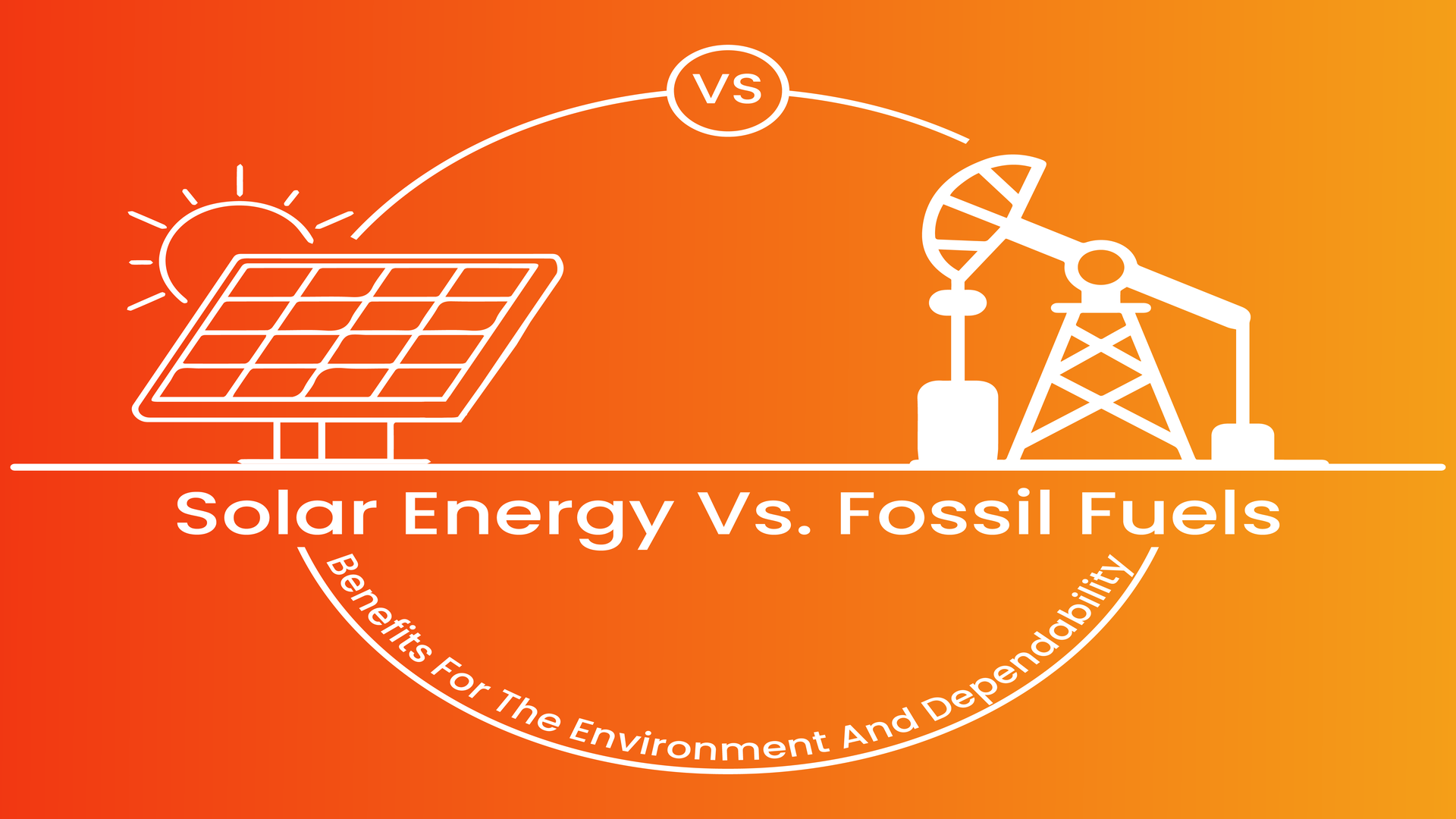
Before getting into the debate of benefits and downside of solar energy or fossil fuels we need to understand something. Just like all other forms of energy, solar energy also has advantages and disadvantages. Solar energy has two major drawbacks over fossil fuel or you can say these factors can make you think twicw. Relatively high initial costs and low energy density.
Lower energy density, on the other hand, isn’t a problem; it simply means that more solar panels are required for a given energy output. Because only certain frequencies of light can strike the panel and need to be converted into electricity, the mechanics of the panel determine the output of solar energy.
Even though fossil fuels appear to be more affordable than solar energy options, the health, environmental, and economic costs outweigh their value. Solar energy has more benefits for the environment and your finances compared to fossil fuels, which are discussed in this article in detail.
A Surge In Solar Energy Consumption Over Fossil Fuels:
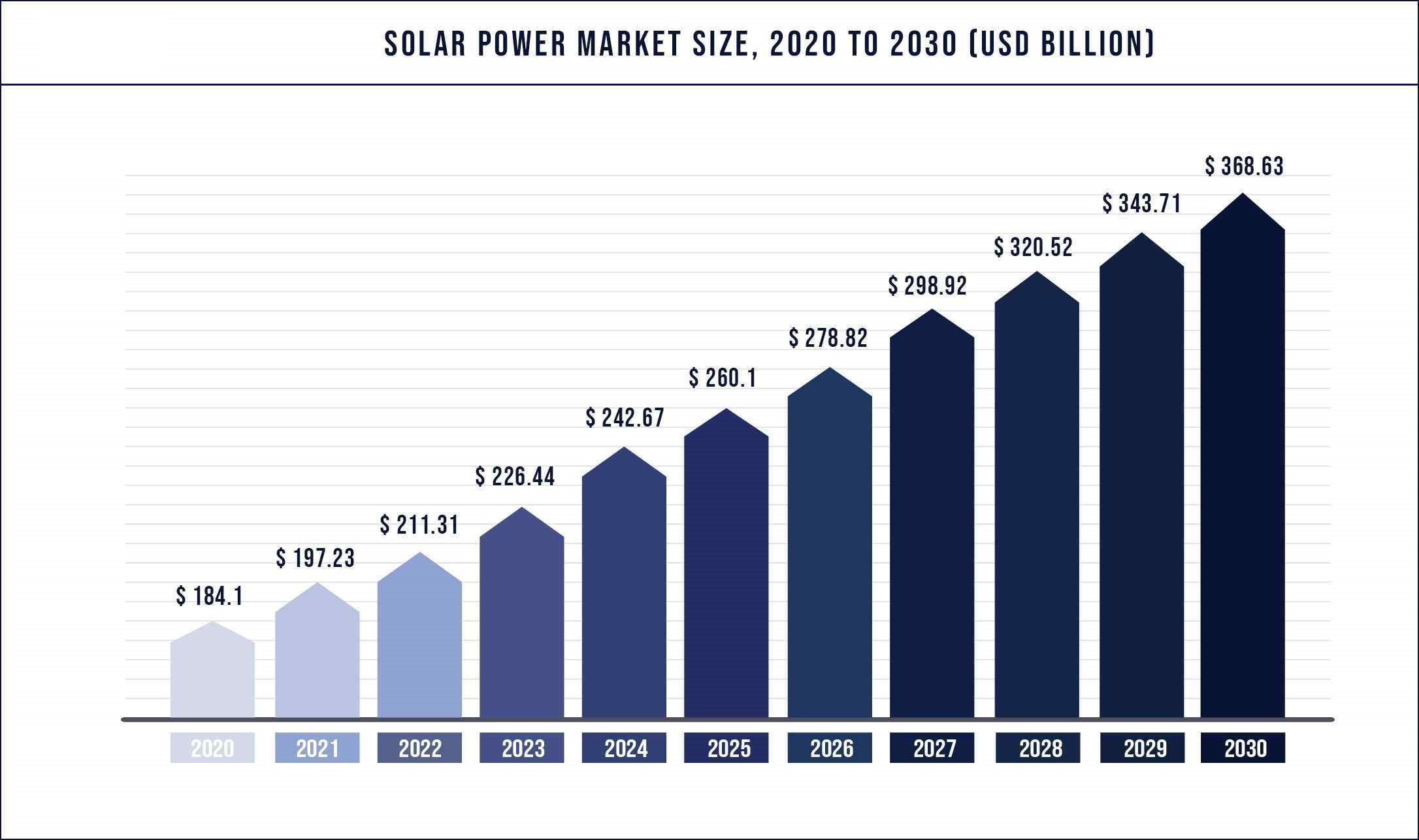
Due to rising electricity prices, a new report predicts that renewable energy investments will outpace fossil fuels by the end of 2022.
Estimation amounts for 2022 and 2023 have been updated upward by 8% since December last year, owing to strong policy support in the People’s Republic of China, the European Union, and Latin America, as well as downward forecast revisions in the United States.
Finally, whether new and stronger policies are introduced and implemented in the upcoming months will determine the forecast of renewable markets for 2023 and beyond.
Solar Energy: A Viable Source And Its Benefits For The Environment
In terms of the lifespan and dependability of solar panels… Yes, solar energy is reliable and beneficial for the environment. The panels are long-lasting and require little to no maintenance or repairs.
Solar energy is the main factor in a sustainable energy future and has more benefits for the environment. The sun produces more than enough energy to meet the entire world’s energy requirements, and, unlike fossil fuels, it will not run out real soon. The only limitation of solar power as a renewable energy source is our ability to convert it into electricity productively and cost-effectively.
- Solar panels generate electricity by converting the sun’s continuous flow of energy into electricity.
- No harmful emissions are released into the atmosphere when solar panels generate electricity.
- The photovoltaic process, which converts sunlight into electricity, requires no fuel and has no operational costs.
Can Solar Energy Completely Replace Fossil Fuels?
You might wonder whether solar energy can replace fossil fuels. Solar energy has potential benefits for the environment and is financially dependable. Renewable energy has significantly reduced prices and reliance on fossil fuels in the short and long term.
Although costs for new solar PV installations have risen, reversing a decade-long cost reduction, natural gas, oil, and coal prices have risen much faster, further improving renewable electricity’s competitiveness.
Nevertheless, solar power has its own set of drawbacks at some points. As a society, we have grown accustomed to the convenience of fossil fuels. Take, for example, driving your car. If you’re going on a road trip, all you have to worry about is having enough gas to get you to the next gas station.
However, if you have an electric car that you charge at home with electricity generated by a solar energy source, you should be concerned about where the nearest charging stations are and how much time you’ll need to charge the car before continuing on your journey.
Going solar, like switching from a gas to an electric vehicle, requires some lifestyle changes. Unless you have a solar energy installation with battery storage, which many do not, you are unlikely to be able to rely on solar energy 24 hours a day. Even if you don’t have energy storage, you can change your electric usage to reduce your reliance on the power company, which burns fuel to generate electricity.
Importance of Solar Energy in Our Society
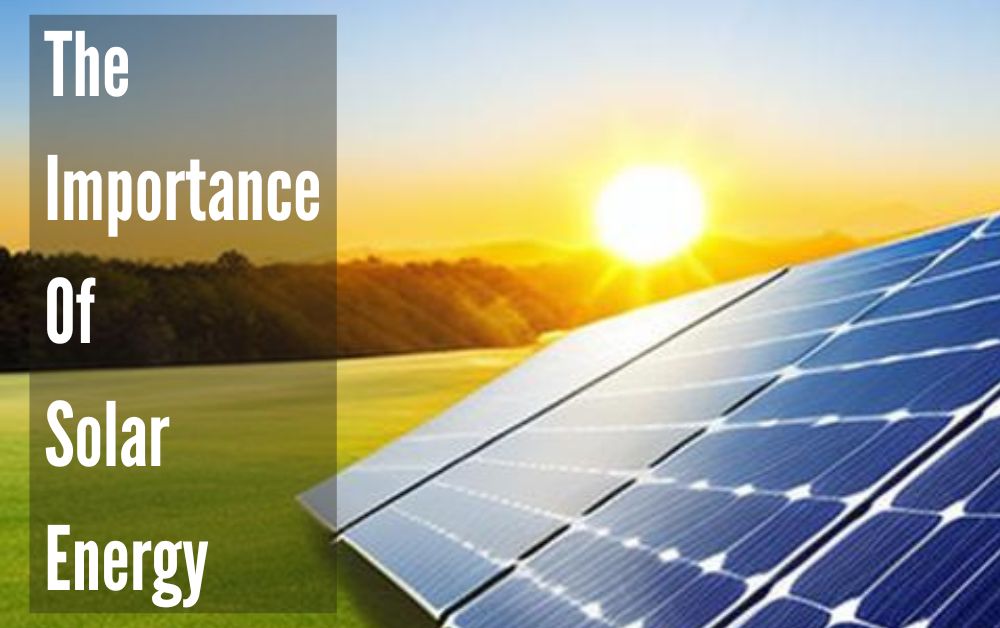
The distribution of fossil fuel deposits on the planet is uneven. This put some countries in an unfavorable position and led to conflicts. On the other hand, sunlight benefits every country. Furthermore, many of the “sunniest” regions are also the poorest, so being able to use solar energy would mean a lot to them.
However, apart from lowering CO2 emissions, access to cheap energy in many countries could mean better living conditions, better hospital conditions, and a better transportation system.
More people will be able to use the internet for education, practice, or work as a result of readily available energy. Of course, any type of automated production requires energy. Moreover, extra energy can always be used to improve Earth’s environmental conditions. Such as water filtration or making seawater drinkable.
So there are many potential benefits of using and developing solar energy for the environment, and hopefully we will live to see its effects.
What happens in the winter and monsoon?
You must be worried about whether solar energy can meet your home’s energy needs during the monsoon and winter. It’s important to know that solar panels can still produce a significant amount of power even during cloudy or low-light conditions.It’s a common concern, especially in areas where monsoons and winters limit the amount of sunlight available each day.
But did you know that solar energy can still provide a significant amount of power even during cloudy or low-light conditions? In fact, solar panels can still produce up to 25% of their rated output on a cloudy day, and advanced technology allows for energy storage in batteries for use during low sunlight conditions.
Not only is solar energy a reliable source of energy, but it’s also a clean and sustainable alternative to fossil fuels. According to the National Renewable Energy Laboratory, the average American household can meet its energy needs with just 28 solar panels, which can offset the production of up to 40,000 pounds of carbon dioxide emissions annually.
So, don’t let worries about the reliability of solar energy hold you back from making the switch. With advancements in technology and storage capabilities, solar energy is a viable and cost-effective option for powering your home. And by choosing solar energy over fossil fuels, you’ll not only save money in the long run but also reduce your carbon footprint.
Ready to make the switch to solar energy? Contact us today to learn more about how solar energy can benefit your home and the environment.
Factors Ensuring the Benefits of Solar Energy Over Fossil fuels
1. Higher efficiency
Solar panels are more cost-effective. Solar panels and batteries have become more accessible, affordable, efficient, and resilient in recent years. They also provide energy safety and peace of mind. Unlike traditional power, which frequently goes out during a rainstorm or storm,
2. Budget-friendly
Solar panels can help you save money by offsetting your electricity bills. It would eliminate the insecurity, inconvenience, and costs associated with oil generators and refueling gas. Installing solar panels for your home will provide consistent and year-round cost savings and efficiency.
3. Governance of power source
Having a solar power system in your home gives you control over your electricity supply. You have the freedom to use it without relying on traditional sources, which can fail at times.
The energy generated by solar panels during the day will be directly supplied to your home’s power appliances. Even at night, the appliances can be powered by the energy stored in the solar system’s batteries.
Installing solar panels would help you meet your need for green energy, making it a dependable source of energy.
4. Solar energy or Fossil fuel: Smart future investment
Solar energy lessens your dependence on fossil fuels such as oil, natural gas, and coal. It’s a renewable energy source with more environmental benefits. Fossil fuels emit harmful emissions that can contribute to air, water, and soil pollution. The use of fossil fuels contributes to global warming and doesn’t have any benefits for the environment in the long run.
On the contrary, solar energy prevents environmental pollution. The sun provides an infinite energy source that does not deplete the ozone layer or degrade the environment.
Switching to solar power would aid in the conservation of confined and non-renewable energy sources while also protecting the environment. This is why solar power is regarded as a dependable source of energy. And an intelligent investment for the planet’s future.
What’s The Future Of Solar Energy Over Fossil Fuels?
Growing environmental concerns have begun to push the world toward the use of renewable energy sources. And, in the future, solar energy will be one of the most important sources of renewable energy. Solar energy is not only plentiful but also easily accessible.
In contrast to other renewable energy sources, such as wind or tidal, solar energy can be easily harnessed by simply installing a solar system at home or the office.
In addition, installing a solar system is significantly less expensive than installing equipment for other renewable energy sources. This gives solar energy a significant advantage over other energy sources. As a result, it is supreme when considering the environmental benefits of solar energy.
Considerations Before Investing In Solar Energy
Considering investing in solar energy but not sure if it’s a dependable source of energy. It’s a valid concern, as many people wonder if solar energy truly benefits the environment and if it can provide an uninterrupted supply of energy to their home.
But here’s the thing: solar energy is a reliable and cost-effective source of energy. In fact, with advancements in technology, solar panels have become more efficient and affordable than ever before.
And the best part? Once you make the initial investment, you can enjoy a virtually unlimited and free source of energy.
However, it’s important to consider the recurring costs associated with solar energy before you make the investment. While the initial capital required for purchasing and installing solar panels may seem daunting. It’s important to remember that the long-term savings can be significant. Plus, with many incentives and tax breaks available, the investment may pay for itself faster than you think.
So, if you’re still unsure whether solar power is a good investment and a reliable source of electricity, keep scrolling. We’ve got all the information you need to make an informed decision. Don’t miss out on the many benefits of solar energy – start exploring your options today. Visit our website Custom pro for everything you need to know.
How do you harness solar energy to gain maximum output?
In the past few decades, researchers all over the world have worked hard to devise more efficient and innovative methods of harnessing solar power. In case you haven’t already started taking advantage of a clean source of energy, you should begin now. Solar energy can be harnessed in five practical ways.
1. Photovoltaic Systems (PV Systems):
These are panels made of materials that, when exposed to sunlight, use heat and light to shake electrons loose and generate an electric current, a process known as the photovoltaic effect.
2. Solar water heating:
These systems are typically rectangular chambers with multiple small tubes known as flat-plate collectors that circulate water or another fluid.
3. Passive Solar Energy
Passive solar heating and lighting can be accomplished directly or indirectly using one of two popular methods.
4. Solar Thermal Electricity
It is possible to concentrate sunlight for heating water and to power turbines, resulting in clean electricity. There are three main types of solar concentrators.
5. Solar Heating and Cooling
When compared to houses and smaller premises, solar energy can be more efficiently harnessed in offices and larger buildings. On a larger scale, parabolic-trough collectors can be used in place of traditional methods for space heating and solar water heating.
As mentioned above, five ways are used to harness solar energy to make it beneficial for the environment. Stick around to our next blog post to get detailed information on how solar energy is harnessed through these five methods.
So What’s Your Take: Solar Energy or Fossil fuels?

Solar energy or fossil fuels has been a long debate among people but we believe Solar energy is nearly perfect, except that the sun does not shine 24 hours a day. Solar panels cost and efficiency are getting better, and they are currently the cheapest form of energy available. Fossil fuels are comparatively efficient, but the adverse effects offset the advantages.
Battery technology is also improving and becoming more affordable. A large number of batteries can store enough solar energy collected during the day to power the same grid overnight, potentially overtaking all other forms of energy generation. So if you have made up your mind to turning ro solar energy contact us right away. Book a free solar consultation with us today. Click here
